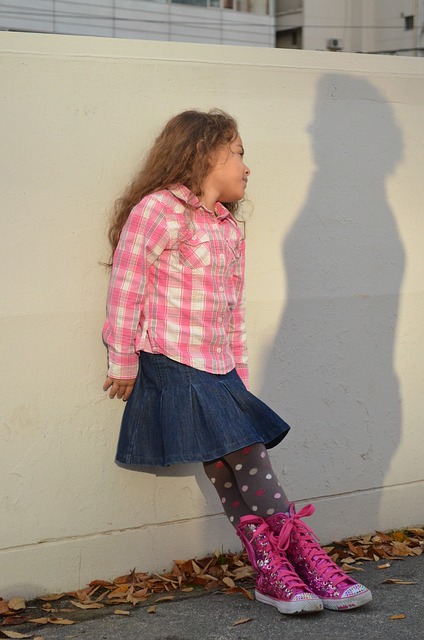 Last week, I wrote about what I DO LIKE about the concept of Love Languages, but there’s more to be said. As promised, here are my problems with the Love Languages. I have two main concerns with 4 subpoints:
Last week, I wrote about what I DO LIKE about the concept of Love Languages, but there’s more to be said. As promised, here are my problems with the Love Languages. I have two main concerns with 4 subpoints:
EGOCENTRISM. First, we tend to deliver love only using our own Love Language(s). Understandably, we do this because we see the world only through our own eyes, therefore, what makes me feel loved is what love is, right? Wrong! We should not assume that what makes me feel loved will make others feel loved; different things matter to different people. I once had a dad insist he loved his daughter because he gave her hugs, (which, of course, he loved to receive). But the daughter actually felt very unloved, because what mattered to her was not hugs, but words of affirmation. He thought he was a loving dad, but was he?
A few years ago, Cindy and I held a marriage seminar at a church and one of our discussion topics, of course, was Love Languages. One of the participants asked: “What if you and your spouse have completely different Love Languages?” That question got me thinking. I realized that when our Love Languages are identical (for example, when two “Touch” people snuggle on the couch) the love displayed is natural, but not very profound. But when Love Languages are vastly different, any delivery of love that accommodates the other person’s Love Languages is extremely profound. Such love is unnatural, chosen, and intentional, and perhaps even costly and sacrificial–i.e. agape love! I concluded that the more unnatural the love displayed is, the more profound it actually is. When I get a hug from my daughter who loves hugs it is wonderful, but not profound. But when I get a hug from my daughter who is squeamish about touch, I feel profoundly loved–we both know that she left her comfort zone to deliver to me a costly gift of love.
ENTITLEMENT. Second, awareness of our own Love Languages backfires when it turns into entitlement, causing us to think, “Aha! This is how I need others to treat me.” Four problems stem from this.
- I am focused on my “needs.” If I view my Love Languages as “needs,” then I’m going to have all the more reason to feel mistreated when others don’t treat me that way. I’ve written before about the folly of being needy. It’s wiser to view our Love Languages as merely longings and desires not as needs. This perspective will make us more content and reduce our tendency to play the victim. People will always fail us; let God be the one to meet our actual needs. I can have joy even if my Love Languages aren’t met!
- I can develop a “UOME” attitude. Awareness of our Love Languages can put our focus on receiving love rather than delivering it. It’s easy to become self-centered, focusing on how others ought to be treating us rather than us becoming others-centered. Romans 13:8 says we owe others love. It would be better to have an IOU attitude toward others–and accommodating their Love Languages will help us deliver the goods!
- I can manipulate others. Knowledge of our Love Languages might may us try to pressure others into treating us the way we want. It’s easy to use Love Language terminology to coerce others with guilt and shame. Sometimes we even weaponize Scripture to get the treatment we want. It’s also possible to keep score on the failure of others or hold them to tests they didn’t know they were taking. For example: “I’m incensed! You know that my Love Language is Touch but you haven’t given me a backrub for 83 days and counting!” It’s important to remember that love can’t be forced or pressured. It is only love if it is freely chosen.
- I can demand 50-50 treatment. When we compare how we’re doing at accommodating others’ Love Languages vs. how they’re doing at accommodating ours, we can easily fall into the 50-50 comparison trap. As I’ve written before, 50-50 is a dangerous equation. It’s better to focus our attention on how to love others according to their Love Languages. We will each answer to God about how we love others, so let’s focus on our part, not theirs.
So those are my concerns. Overall, I find the Love Languages very helpful, but these pitfalls definitely need to be avoided!
Now let’s get out there and learn how to love people in their own Language(s)!









 I conceptualized this essay 18 months ago, but recent events in our family have shown me that it’s time to flesh out my thoughts.
I conceptualized this essay 18 months ago, but recent events in our family have shown me that it’s time to flesh out my thoughts.

 I’ve met many Christians who are determined to never get a divorce due to their biblical convictions, but I find the goal of simply not getting divorced to be extremely short-sighted. I’m not here to make a case for or against divorce, but my point here is that there are many seemingly “intact” marriages that are so unhealthy that their kids can only be described as growing up in a broken home.
I’ve met many Christians who are determined to never get a divorce due to their biblical convictions, but I find the goal of simply not getting divorced to be extremely short-sighted. I’m not here to make a case for or against divorce, but my point here is that there are many seemingly “intact” marriages that are so unhealthy that their kids can only be described as growing up in a broken home. How to make your wife and kids feel unneeded…
How to make your wife and kids feel unneeded…